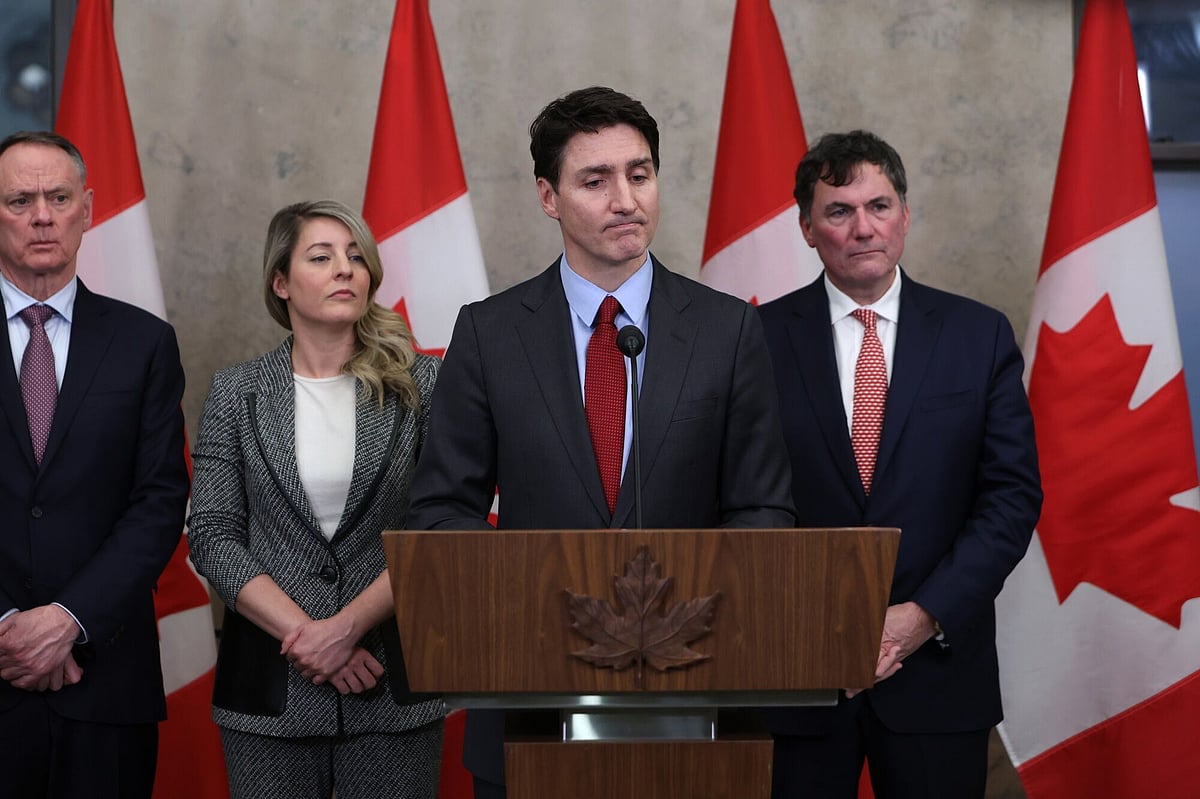Tariff war averted (for now): 'Good call' between Trudeau, Trump
Fentanyl czar, $1.3b border security: Canada-US talks yield results amid tariff threats

In a significant development, Canadian Prime Minister Justin Trudeau and US President Donald Trump have reached an agreement to temporarily halt the imposition of tariffs, averting a potential trade war between the two nations.
This decision follows a series of discussions aimed at addressing mutual concerns over border security and the trafficking of fentanyl.
On Tuesday, Trudeau announced via Twitter that he had a productive conversation with President Trump.
He detailed Canada's commitment to a $1.3 billion border security plan, which includes deploying new helicopters, advanced technology, and additional personnel to strengthen the border.
The initiative also emphasizes enhanced coordination with American counterparts and increased resources to combat the flow of fentanyl. Trudeau highlighted that nearly 10,000 frontline personnel are dedicated to this mission.
'Fentanyl Czar', anti-money laundering
Further measures by Canada involve the appointment of a "Fentanyl Czar," the designation of cartels as terrorist organizations, and the establishment of a Canada-U.S. Joint Strike Force to tackle organised crime, fentanyl distribution, and money laundering.
An additional $200 million has been allocated to support these initiatives. As a result of these commitments, proposed tariffs will be paused for at least 30 days to allow both nations to collaborate on these pressing issues.
According to the New York Post, the agreement includes Canada deploying 10,000 troops to guard the northern border and intensifying efforts against fentanyl smuggling.
This move is part of a broader strategy to enhance border security and address drug trafficking concerns.
The Times reports that both Canada and Mexico have agreed to a 30-day pause on U.S. tariffs.
This pause aims to provide time for negotiating a final economic deal.
Canada, leveraging its significant economic influence, implemented targeted retaliatory tariffs affecting politically sensitive American goods. This approach exerted pressure on the US, leading to the temporary agreement, as per The Atlantic.
This agreement comes in the context of a broader trade conflict initiated on February 1, 2025, when President Trump signed orders imposing tariffs on goods from Canada and Mexico.
The tariffs were set at 25 per cent on all exports from Mexico and all Canadian exports except for oil and energy, which were taxed at 10 per cent.
The stated goals were to stop illegal immigration to the US and the supply of fentanyl across its borders, as well as to reduce the US trade deficit.
In response, Canada and Mexico planned retaliatory measures, asserting that the tariffs violated the United States-Mexico-Canada free trade agreement ratified in 2020.
Trade disruption
Economists warned that these tariffs could disrupt trade, upend supply chains, and increase consumer prices across North America. The recent negotiations have led to a one-month delay in the implementation of these tariffs, providing a window for further dialogue and resolution.
This temporary tariff pause reflects efforts on both sides to strengthen border security and address the pressing issues, while providing a window for both nations to negotiate a more permanent solution to their trade disputes.
Sign up for the Daily Briefing
Get the latest news and updates straight to your inbox
Network Links
GN StoreDownload our app
© Al Nisr Publishing LLC 2026. All rights reserved.